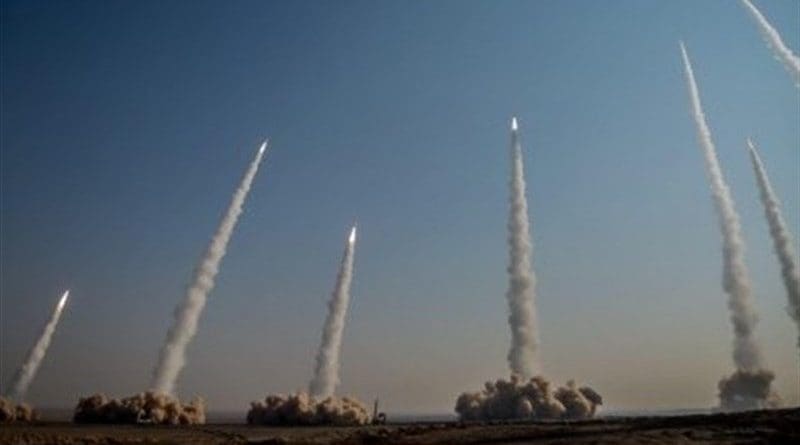Air And Missile Defense Vital To Middle East In Face Of Iran Threats, US General Says
By DoD News
By David Vergun
Ballistic missile threats from Iran and its proxies are deeply concerning to nations in the Middle East, the commander of U.S. Central Command said.
Marine Corps Gen. Kenneth F. McKenzie Jr. briefed the media from Centcom Headquarters in Tampa, Florida.
“Iran’s ballistic missile threat has continued to advance and expand with greater ranges and accuracy,” he said, adding that land attack cruise missiles and small unmanned aerial vehicles also are part of that threat.
Partner nation air defense systems in the region far outnumber those that the U.S. has there, he said. Air defense systems, including high-end ones like the Patriot system, are used by the Gulf States and others.
“The task in the theater is really how do you knit those together so that you create more than a simple sum of the component parts,” he said.
“By doing so, you create a common operational picture, so everybody sees the same thing. Everybody gets early warnings; everybody can be prepared to react very quickly to a potential Iranian attack. That’s where the future in this theater is,” he said.
Iranian ballistic missile threats have provided some opportunities for the United States to advance regional cooperation in the area of air defense, he said.
“Centcom is focused on operationalizing the Abraham Accords as we brought Israel into our area of operations, and missile defense is one area of cooperation that all our partners understand,” he said.
Improving regional missile defense can begin with the sharing of information, which doesn’t require any nation to approve the stationing of foreign forces on their territory, he said. “My hope is that this cooperation will continue to advance in the years to come.”
The number one objective of the United States regarding Iran is that it does not possess a nuclear weapon. The best way to get there is probably through a negotiated agreement as they clearly want relief from sanctions, he said.
That does not solve the compelling problem of Iranian ballistic missiles, land attack cruise missiles and small unmanned aerial vehicles, he said. “We need to recognize that; that’s a separate problem. But I do like having the ability to take the nuclear option off the table, which has to contribute to regional security,” he said.
Lastly, as McKenzie will soon be retiring, he offered some remarks to the press.
“Reaching out and being available to the press and talking to the press is a very important responsibility for all senior leaders,” he said. “There have been days, I’ll tell you, that I would rather have my leg taken off below the knee than come in there and talk to you guys, but it was an important thing to do.
“And in the long run, it’s better for the country. It’s better for everyone, if we’re accessible to you, and we share what information we’ve got. I’ve enjoyed the very professionally rewarding and personally rewarding relationships that I’ve had with members of the media. You’re trying to do your job and your job is very important. And I support it,” he said.

